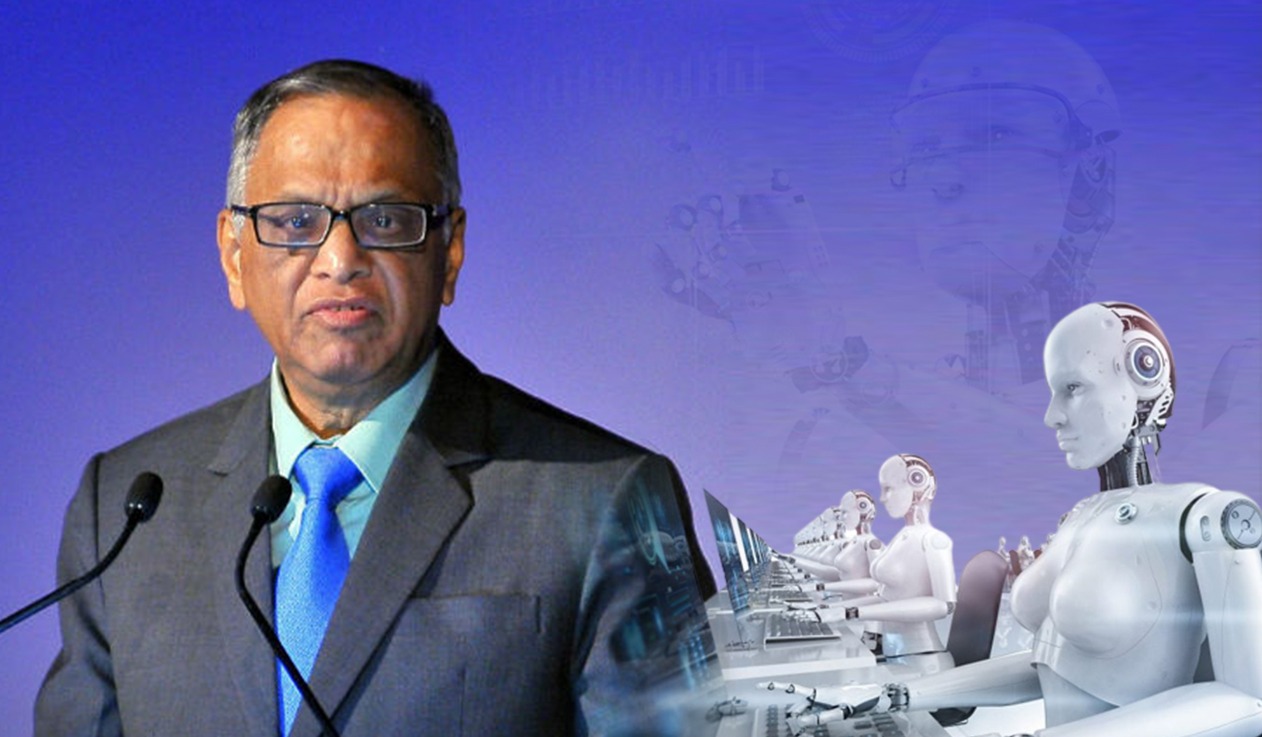
Addressing the increasing concern and fear surrounding the emergence of AI language models such as ChatGPT, Infosys founder Narayana Murthy dismissed the notion that they will eventually replace human workers. In a recent interview with reporters, Murthy pointed out that similar anxieties arose when generative programs were introduced in 1977-78.
According to Murthy, the human mind is far more adaptable and flexible than AI. He recommends leveraging AI as a foundation to build upon, rather than being intimidated by it. While AI can automate routine and repetitive tasks, humans possess unique qualities such as creativity, critical thinking, and emotional intelligence that are still beyond the capabilities of AI.
Coders aren’t at the risk of losing jobs due to A.I. platforms like #ChatGPT, says @Infosys Co-Founder Narayana Murthy (@Infosys_nmurthy) on the sidelines of a #NASSCOM event. @tds19
— BQ Prime (@bqprime) March 3, 2023
Read: https://t.co/xM3TF2mkGi pic.twitter.com/avpt3qsU6G
It's worth noting that AI has the potential to create more jobs than it displaces. By automating mundane tasks, AI can free up humans to focus on higher-value work. For instance, AI can assist doctors in diagnosing and treating patients, but it cannot replace the compassion and empathy that patients need. Similarly, AI can help architects design more efficient buildings, but it cannot replace the vision and creativity required to create truly innovative designs.
Moreover, AI must be used responsibly and ethically with human oversight. While AI can identify biases in hiring practices, it cannot address the underlying social and economic factors that give rise to those biases. Similarly, AI can assist in detecting fraud, but it cannot make ethical decisions regarding prosecution.
Will ChatGPT Steal Your Jobs?
As an AI language model, I cannot steal anyone's job, nor do I have any intention to do so. My purpose is to assist and augment human intelligence, not replace it. While some people may fear the rise of AI and automation, it's important to understand the reality of what AI can and cannot do.
First and foremost, AI like myself are designed to automate routine and repetitive tasks, such as data entry, image recognition, and language translation. These are tasks that can be done more quickly and accurately by AI than by humans. However, there are many tasks that require human creativity, critical thinking, empathy, and emotional intelligence - areas where AI still lags far behind humans.
In fact, many experts believe that AI will create more jobs than it displaces, as it frees up humans from routine tasks and enables them to focus on higher-value work. For example, AI can help doctors diagnose and treat patients more accurately, but it cannot replace the human touch and empathy that patients need. AI can also help architects design more energy-efficient buildings, but it cannot replace the creativity and vision required to create truly innovative designs.
Furthermore, AI is not a magic solution that can solve all problems on its own. AI requires human input and oversight to ensure that it's being used in a responsible and ethical manner. For example, AI can help detect fraud, but it cannot make ethical decisions about whether to prosecute someone. AI can also help identify biases in hiring practices, but it cannot address the underlying social and economic factors that lead to those biases.
Overall, the rise of AI is not something to be feared, but rather something to be embraced and harnessed for the betterment of society. AI can augment human intelligence and enable us to solve problems that were previously beyond our reach. But it cannot replace the unique skills and talents that humans bring to the table. So, rest assured that ChatGPT and other AI models like me are here to assist and collaborate with humans, not replace them.
In conclusion, the rise of AI is not a threat to human jobs, but rather an opportunity to augment and enhance human intelligence. By leveraging AI, humans can solve problems that were previously beyond our reach. It's important to acknowledge the unique qualities that humans possess and to collaborate with AI models like ChatGPT, rather than viewing them as a threat to our livelihoods.